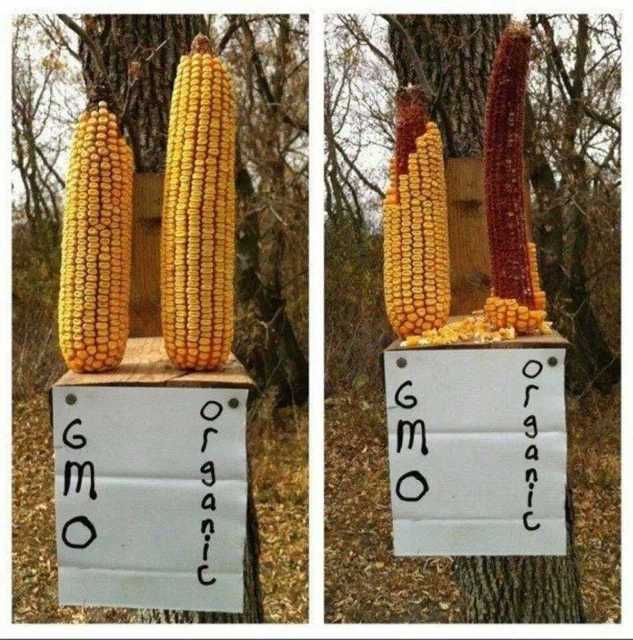Opinion: When It Comes To GMOs, Sentiment Often Outweighs Science
 Recently, Julie Borlaug spoke during the Bayer CropScience Ag Issues Forum in San Antonio about the losing battle agriculture has experienced when trying to explain the benefits of GMOs. The event hosts agricultural media from across the country and features wide-ranging discussions on the current and future state of food production.
Recently, Julie Borlaug spoke during the Bayer CropScience Ag Issues Forum in San Antonio about the losing battle agriculture has experienced when trying to explain the benefits of GMOs. The event hosts agricultural media from across the country and features wide-ranging discussions on the current and future state of food production.
Julie is the granddaughter of the late Norman Borlaug, who we all know as the father of the “Green Revolution.” She is carrying on her grandfather’s legacy as the associate director of external affairs for the Borlaug Institute. During her presentation, Borlaug contended agriculture is losing the PR battle over GMOs because for too long we have counted on science to win the day.
After all, just about every scientific organization of note has been on record stating GMOs are safe, and in fact, are beneficial to mankind in many places. But, Borlaug noted, “Scientists like my grandfather unfortunately are a lot better at doing science than communicating about it.”
We also have fallen into complacency with the “we must feed and clothe 9 billion people by 2050” argument. I’m guilty. But, Borlaug says opponents simply don’t buy this argument, so new tactics are needed.
The opponents of GMOs often use more emotional tactics to argue against the technology. Now, they have powerful social media tools to spread the word. Science and fact-checking be damned once something goes viral.
If your Facebook and Twitter feed is anything like mine, scary warnings about “Big Ag” and GMOs pass by often. Borlaug showed the now viral posting of two ears of corn side-by-side — one eaten away by squirrels and the other not touched. Of course, under the corn that was left alone, in big letters was, GMO. The tagline reads: “Even squirrels won’t eat GMOs.”
The very same photo was shared by a Facebook friend of mine recently, only in this instance it stated: “Even rats won’t eat GMOs.” This is how the arguments are made, and many people believe it and are not going to take the time to study and learn more about the topic.
“We have to dumb down and shorten our message,” Borlaug said. “The scientific debate over the safety of GMOs is over, but we are talking to people outside of agriculture. We are talking to moms who believe everything they see on Facebook and people who are anti-corporate, except when it comes to their Apple iPhones.”
But what would a more emotionally-based argument in support of GMOs look like? Borlaug provided an example of test fields of Golden Rice that were recently sacked by protestors in the Philippines. Golden Rice has been modified to supplement Vitamin A, which is deficient in the diets of many people in developing countries across Asia. The deficiency causes blindness and even deaths among children in those regions.
“My question to these biotechnology opponents is do you really want to deny Golden Rice to those who so profoundly could benefit from this technology,” she said. “Are you willing to let 250,000 to 500,000 children go blind every year and the other two million people that will die because of this?”
That will tug at your heart strings for sure. Borlaug nailed it that we must use a more emotional approach to communicate agriculture’s message in a world of 140 characters or less. The good news is our industry is replete with inspiring, feel-good stories. Let’s keep the science in the hip pocket and engage with feelings more often.





